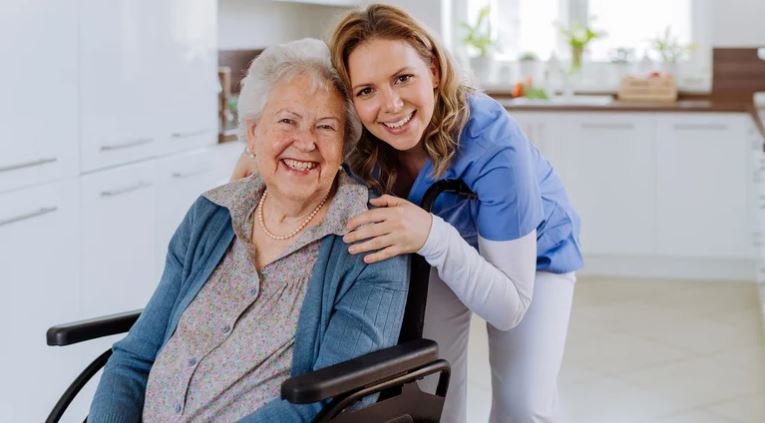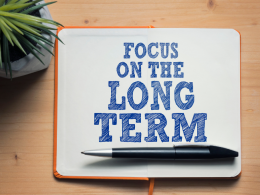Understanding the UK benefits system can often feel like navigating a maze. Many people who receive Personal Independence Payment (PIP) find themselves wondering whether they can also claim Carer’s Allowance, especially if they live with long-term conditions or disabilities and manage their own care.
This blog will guide readers through this complex topic, offering clear and accurate information based on the latest guidelines and insights from reliable 2025 sources.
Whether you are someone on PIP, a family member, or a carer navigating support options, this guide will help make things a little clearer.
What Is Carer’s Allowance?

Carer’s Allowance is a financial benefit offered by the UK government to support people who provide unpaid care to someone with substantial care needs.
As of 2025, the weekly Carer’s Allowance rate is £81.90, and it serves as a lifeline for many who support loved ones on a full-time basis.
To qualify, an individual must care for someone for at least 35 hours per week and the person they care for must be receiving a qualifying disability benefit, such as PIP (daily living component), Attendance Allowance, or Disability Living Allowance.
Key Eligibility Requirements
To be eligible for Carer’s Allowance, you must:
- Be 16 or over
- Provide care for 35 hours or more per week
- Not earn more than the income threshold (currently £151 per week after deductions)
- Not be in full-time education
It’s important to note that Carer’s Allowance is taxable and may impact other benefits you or the person you care for receive. However, it can also open doors to additional benefits like Carer’s Credit.
This benefit is designed for people who provide care to others, and this is a central point in determining whether one can claim it for themselves while receiving PIP.
How Does Personal Independence Payment (PIP) Work in the UK?
Personal Independence Payment, or PIP, is a benefit designed to help people with the extra costs associated with long-term health conditions or disabilities.
It replaced Disability Living Allowance (DLA) for most adults and is not income-based, meaning it can be received whether or not you are working or have savings.
PIP has two components:
- Daily Living: for those who need help with everyday tasks
- Mobility: for those who need help getting around
Each component can be paid at either a standard or enhanced rate, depending on the severity of the individual’s needs. The assessment process includes a detailed review of how a condition affects the individual’s ability to function independently.
Key Facts About PIP
- Payments range depending on the level of support required
- PIP is not affected by employment status
- Medical evidence and assessments determine eligibility
- Can be received alongside other benefits like Universal Credit
PIP is designed to support a person with their own care needs, not to pay someone for providing care to themselves. This distinction becomes critical when considering Carer’s Allowance eligibility.
Can Someone on PIP Also Be Considered a Carer?

It is entirely possible for someone who receives PIP to also act as a carer for someone else. In the UK, there are many individuals with disabilities who manage their own conditions while providing regular support to a spouse, parent, child, or friend.
As long as the person meets the Carer’s Allowance eligibility criteria, including the 35 hours of care per week and income limits, they can apply, regardless of whether they are on PIP themselves.
Real-Life Scenarios
- A woman receiving PIP for a physical disability cares for her elderly mother who has dementia. She can claim Carer’s Allowance because she meets the care hour and eligibility rules.
- A man with mobility issues receives PIP but provides emotional and practical support to his autistic son. He may be eligible depending on the nature and extent of the care he provides.
What matters here is not whether the carer receives PIP, but whether they are providing unpaid care to someone else who receives a qualifying benefit.
What Are the Key Eligibility Rules for Claiming Carer’s Allowance?
Understanding the full eligibility requirements for Carer’s Allowance is key to answering whether someone can claim it for themselves, and the answer will become clearer when we unpack the rules.
General Eligibility Criteria
- The carer must be aged 16 or over
- They must not be in full-time education
- They must earn less than £151 per week after tax, National Insurance and expenses
- They must care for someone at least 35 hours a week
- The person being cared for must receive a qualifying benefit (e.g., the daily living component of PIP)
Additional Considerations
- Carer’s Allowance cannot be paid to care for yourself
- A person can receive Carer’s Allowance while also receiving other benefits, but it may affect the amount
- The benefit is counted as income and may affect tax obligations
Understanding these rules helps underline why Carer’s Allowance is meant strictly for providing care to another person.
Can I Claim Carers Allowance for Myself on PIP?

The straightforward answer is no, you cannot claim Carer’s Allowance for yourself while receiving PIP. Carer’s Allowance is specifically designed to support someone who is providing care to another person. It is not a self-care benefit.
Why It’s Not Allowed?
- Carer’s Allowance is conditional on caring for someone else
- You cannot be both the carer and the person receiving care in the same claim
- The system assumes that one person is the claimant (who needs care) and another is the provider (the carer)
Alternative Support for Self-Carers
While you can’t claim Carer’s Allowance for yourself, PIP itself is intended to help with the costs of managing a disability or long-term condition. In cases where additional help is needed, claimants may also explore:
- Attendance Allowance (if over State Pension age)
- Universal Credit (with limited capability for work element)
- Adult Social Care support from local councils
There is also the possibility of receiving a Carer Premium or Carer Element as part of Universal Credit if someone else claims Carer’s Allowance for you.
Is It Possible to Claim Carer’s Allowance for Looking After Yourself?
While it might seem reasonable to think that someone managing their own care should be compensated for their time and effort, UK benefit regulations do not support this model.
The government’s position is clear: Carer’s Allowance is strictly for unpaid care provided to another individual who meets the qualifying criteria. You cannot be both the carer and the cared-for person in the same benefit structure.
Common Misunderstandings
- Some individuals on PIP believe they are entitled to Carer’s Allowance because they spend time managing their condition
- Others assume that because they don’t receive paid care, they can claim the carer benefit for themselves
While self-care is undeniably challenging and requires time, the benefit system does not offer a direct route for individuals to claim Carer’s Allowance for self-care responsibilities.
Can Someone Receive PIP and Be a Carer for Someone Else?

Yes, this is not only allowed, it is increasingly common. Many people with disabilities provide substantial support to partners, children, or other family members with health needs.
Key Considerations
- You must still meet the basic Carer’s Allowance rules
- Your own PIP award does not impact your eligibility to be a carer
- You cannot claim for the same person someone else is already claiming for
This setup allows people to retain their independence and contribute meaningfully to their households while receiving appropriate financial support. However, the person they care for must meet eligibility requirements for the carer to qualify.
What Happens If Both Individuals in a Household Receive PIP and Care for Each Other?
This situation is known as mutual caring, and it’s more common than many assume. Partners or family members with disabilities may both receive PIP and provide emotional and physical support to one another.
Can They Both Claim Carer’s Allowance?
- Technically, yes, if both individuals meet all the Carer’s Allowance criteria and care for each other
- However, only one Carer’s Allowance can be paid per person being cared for
- If both people apply and are eligible, each person must ensure they are not already the cared-for person on someone else’s claim
Local councils and advisory services like Carers UK often recommend seeking advice before applying in mutual caring situations due to the complex overlap of benefits.
How Does Carer’s Allowance Affect Other Benefits Like Universal Credit or ESA?
Carer’s Allowance can interact with several other UK benefits, and the impact varies depending on the claimant’s circumstances.
Interactions to Be Aware Of
- If you receive Universal Credit, claiming Carer’s Allowance can trigger the Carer Element, which adds extra money to your payment
- If you receive Employment and Support Allowance (ESA), claiming Carer’s Allowance may reduce the ESA amount but can still be financially beneficial overall
- State Pension overlaps with Carer’s Allowance, so if you’re receiving the full State Pension, you may not get paid Carer’s Allowance but can get the underlying entitlement that opens doors to other benefits
Benefit systems are linked, and changes in one area can impact payments elsewhere, so it’s wise to consult a benefit advisor or use the government’s benefits calculator before applying.
Are There Financial Drawbacks or Overlaps When Claiming Both PIP and Carer’s Allowance?

While it’s legal to claim both benefits under the right conditions, some financial nuances exist.
Overlap Examples
- If you claim Carer’s Allowance and PIP, it might reduce means-tested benefits like Income Support
- Carer’s Allowance is taxable, so if your overall income exceeds the personal allowance threshold, you may have to pay tax on it
- Receiving Carer’s Allowance may stop a Severe Disability Premium from being added to another benefit claim
Being fully aware of these potential drawbacks allows for informed decision-making when structuring your benefits.
Where Can Claimants Get Advice or Help on Carer’s Allowance and PIP Eligibility?
Understanding benefits is no easy task. Fortunately, several reliable sources offer help:
Sources of Advice
- Citizens Advice: Offers in-person and online support
- Carers UK: Provides detailed guides and telephone support lines
- Local Councils: Social care departments can assess needs and offer guidance
- Gov.uk: The official website for benefit eligibility and claims
Benefit regulations can change, and getting advice before making a claim ensures you’re not missing out on entitlements or risking overpayments.
Conclusion
So, can you claim Carer’s Allowance for yourself on PIP? The answer is no, Carer’s Allowance is strictly intended for people who provide care to others. However, if you receive PIP and also care for someone else who qualifies, you may be eligible for Carer’s Allowance.
The system is built around separating the roles of care provider and recipient. While that may not align with every personal circumstance, there are alternative support options available.
As always, understanding the full picture, from eligibility to financial impact, is the key to making the most of the UK’s benefits system in 2025.
FAQs
Can You Claim Carer’s Allowance and PIP at the Same Time?
Yes, if you receive PIP and also provide care to someone else for at least 35 hours a week, you can claim Carer’s Allowance.
Can You Be a Carer for Someone While Receiving PIP?
Yes, receiving PIP doesn’t prevent you from becoming a carer, provided you meet the eligibility conditions.
What’s the Difference Between PIP and Carer’s Allowance?
PIP supports people with disabilities or long-term health issues, while Carer’s Allowance supports those caring for someone else.
Can You Claim Carer’s Allowance for Looking After a Spouse?
Yes, as long as your spouse receives a qualifying benefit and you meet the other eligibility criteria.
What Happens If You Look After More Than One Person?
You can only receive one Carer’s Allowance payment, even if you care for multiple people.









